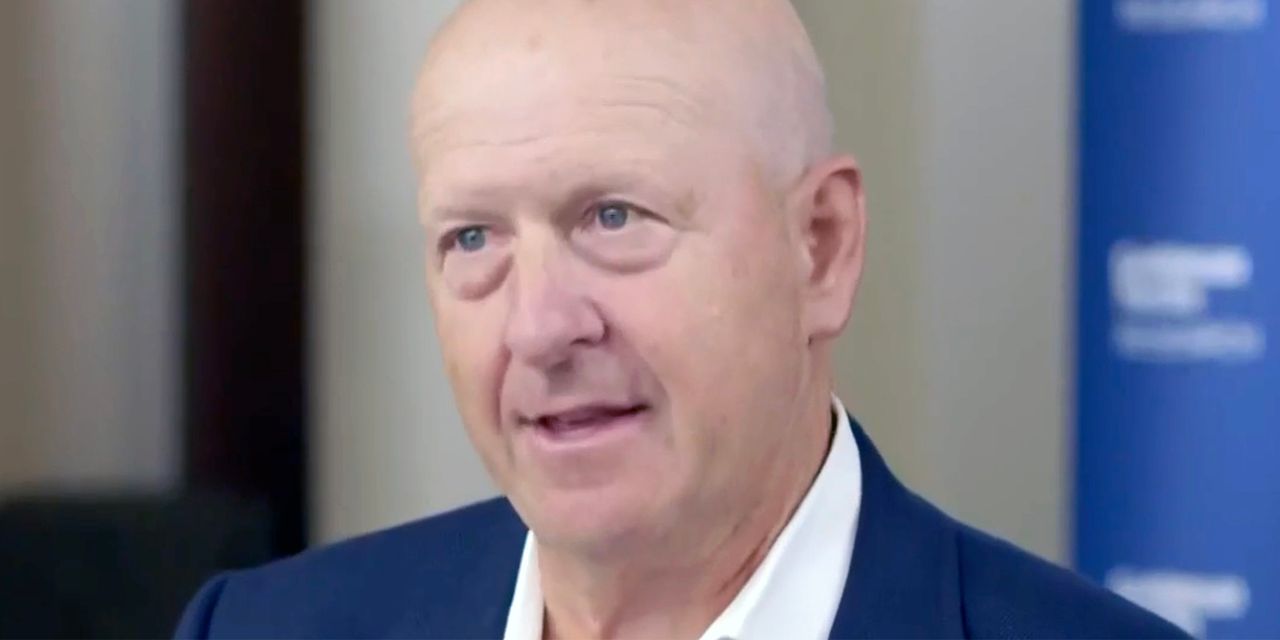Embattled Goldman Sachs Group Inc. Chief Executive David Solomon said Thursday he remains optimistic about the firm’s prospects despite media reports that he’s difficult to work with as he continues to steer the bank toward an expected uptick in deal-making.
“I don’t recognize the caricature that’s been painted of me,” Solomon told CNBC’s David Faber in a live TV interview on Thursday. “My colleagues don’t know that [person] either.”
Regardless of what he reads in the press, Solomon said he’s always reflecting on his leadership and ways to improve in the job.
The criticisms from Goldman Sachs
GS,
employees — mostly unnamed sources — came via a series of articles starting with the Wall Street Journal that highlighted complaints from former CEO Lloyd Blankfein and others.
Solomon said it’s “no fun” seeing the personal attacks and speculated that some of it may be from the fact that Goldman did very well for its partners in 2021, but profits fell in 2022.
The bank’s “significant” strategic decisions to create three divisions in a move that eliminated thousands of jobs also created some “noise” around his leadership, Solomon said.
But past CEOs have also been criticized when the firm has evolved, such as when it combined its equities and fixed-income trading businesses under one department, he said.
Another complaint in the articles was that Solomon’s hobby as a disc jockey was distracting him from his job.
Solomon told CNBC’s Faber that he’s no longer spending time as a DJ and that his sole focus is Goldman Sachs.
While 200 partners have left the firm in recent years, Solomon said the turnover rate has not changed from its historic past as it constantly refreshes its stable of 400 partners.
With Goldman Sachs as a lead underwriter of next week’s blockbuster initial public offering from chip maker Arm Holdings Ltd., Solomon said the moribund market for IPOs may soon pick up steam.
“I feel better about capital markets,” Solomon said. “Over the next few months, with Arm and other IPOs — if they go well you’ll see a meaningful increase in activity.”
Overall business confidence from executives has also improved over last year, with an uptick in M&A from roughly 10-year lows expected this year, he said.
Goldman Sachs plans to join other banks in pushing back against stricter capital requirements being proposed by the U.S. Federal Reserve and the FDIC for banks as part of the implementation of international Basel III requirements put in place after the global financial crisis.
“We think these new capital rules have gone too far and will hurt economic growth without materially increasing safety and soundness,” Solomon said. “Banks are expressing that view. There will be debate around this.”
Solomon has drawn criticism on a wide range of issues, from canceling “summer Fridays” at the bank to Goldman’s costly retreat from the consumer-banking business.
The bank also faces a Justice Department inquiry into Goldman’s role as both a banker and acquirer of Silicon Valley Bank securities in the period leading up to that bank’s collapse in March.
Also read: Goldman Sachs still a buy, bank analyst says, despite noise around CEO David Solomon
Over the summer, Goldman announced the return of veteran Russell Horwitz as chief of staff and the departure of two other executives. Horwitz was known as “Mr. Fix-It” at Goldman during the financial crisis of 2008-’09.
Solomon also brought ally Tom Montag onto the board a few weeks ago.
In June, the Wall Street Journal reported on criticism of Solomon from some of the firm’s 400 partners and Blankfein over the bank’s retreat from consumer banking.
As of early this year, Goldman is now organized into three major units: Global Banking & Markets, Asset & Wealth Management and Platform Solutions. Previously, it reported four units: Investment Banking, Global Markets, Asset Management and Consumer & Wealth Management.
The changes have resulted in thousands of layoffs at Goldman Sachs, as well as about $3 billion in losses in its platform solutions unit since 2020.
Goldman is also reportedly close to selling its GreenSky consumer lending unit.
On the plus side, Solomon has signaled that a multi-year trough in deal-making this year would soon end.
Goldman Sachs stock is down 6.2% in 2023, compared to a 4.1% gain by the Dow Jones Industrial Average
DJIA
and a 15.9% rise from the S&P 500
SPX.
JPMorgan Chase & Co.
JPM,
is up by 7.1% this year, while Morgan Stanley
MS,
is down 1.1% in 2023.
Wells Fargo & Co.
WFC,
stock is off by 2.2%, while Citigroup Inc.
C,
is down 9.9% and Bank of America Corp.
BAC,
is down by 15%.
Also read: Dealmakers predict M&A trough in private-market deals may smooth out in coming months
Read the full article here













Leave a Reply